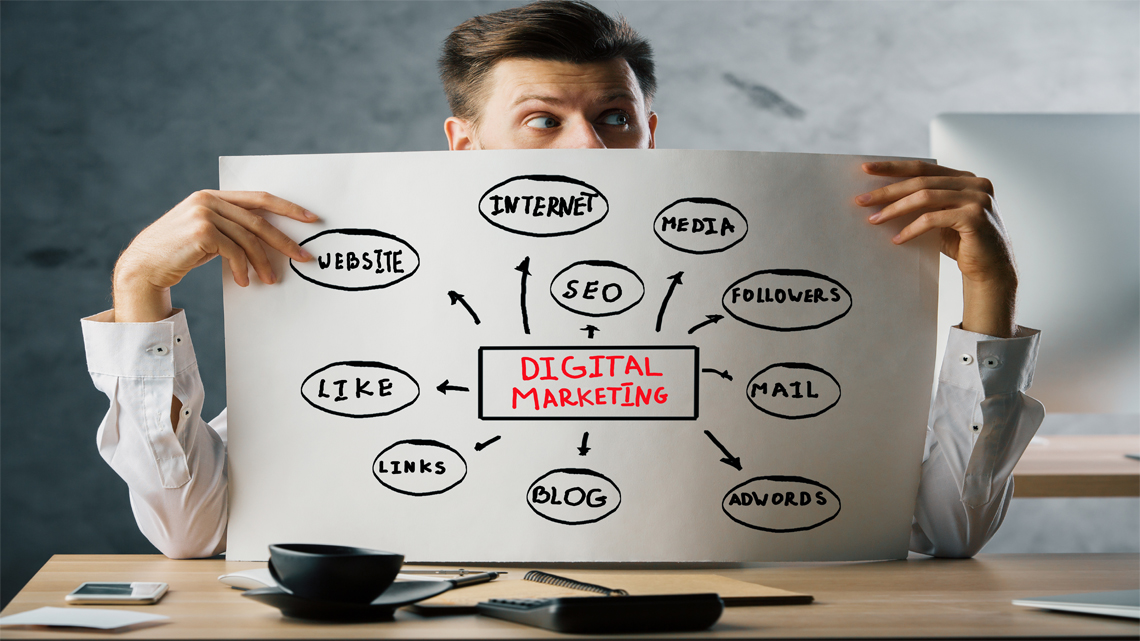
Personalization is solely the delivery of best in class experience, specifically for each prospect based on their digital behaviors and interest. Creating personalized interactions involves customized content delivery, product recommendations and strategic remarketing. In a digital driven world, personalized marketing is vital for market differentiation, competitive edge and brand credibility and high-impact results. This blog explores the significance of personalization in digital marketing, essential strategies and successful implementation techniques.
What is Marketing Personalization?
Personalized marketing is aimed to tailor offers and marketing efforts that aligns with the user data including their interest, purchase actions and browsing history etc. One-on-one individualized marketing through product recommendations or customized emails, businesses can engage customers with a more solution based and relevant way.
Why Personalization is Important
- Increasing consumer demand for tailored experiences
In this digitally evolving era, the consumers are expecting brands to understand their expectations and drive interactions. Many studies have proven that the customers are more likely to engage when the brand provides them personalized suggestions than irrelevant or standardized messages. Personalized marketing gravitates more customer attention than a generic approach.
- More access to customer behavioral data
With digital data deployment, businesses can access behavioral based customer insights including browsing habits and social media interest. This data, if used intentionally and strategically, brands can cultivate a more effective and tailored marketing outreaches.
- Digital competition differentiation
In the modern business landscape, consumers face numerous comparable solutions. This critically elevates the force of market competition. Facilitating tailor made experience can help differentiate your brand from the crowd and convert every visitor into a loyal customer.
- Improved psychological targeting
Individualized messaging is the key step to the psychology of attention. Delivering content that specifically resonates with a prospect’s requirements and expectations, brands are establishing emotional relevance, leading to increased possibility of conversion.
- Better return on marketing investment
Better ROI can be achieved through personalization, as it leads to a higher click-through and conversion rate. Individualized marketing is more result focused and helps organizations to reduce cost expenditure.
- Enhanced customer satisfaction
When the consumer groups are handled with most relevant and information that resonates their personal interest eliminates the chances of frustration and brand disapproval. This eventually builds customer loyalty and increases retention rate.
- Enhanced Lead Generation
Customized CTAs, email, and web pages based on your targeted segment of audience shows more possibility to lead generation. Allowing the customer to feel a sense of tailor made messaging exclusively for them, creates greater brand appreciation.
- Stronger brand loyalty
Brand loyalty cannot be achieved through one time perfection, It requires consistent efforts of personalized efforts. Most commonly, customers do repeat purchases when a brand continuously offers them products or services that speak their concerns and values.
Types of Personalization Strategies
- Content Personalization
Optimizing web or application content in accordance with the user behavior and service preferences are a key approach to marketing efficiency. For instance, highlight a series of blogs that resonate with each type of your audience.
- Email Personalization
Sharing emails regarding exclusive deals and offers based on customer past purchase history, behaviors and interest are highly effective. To illustrate, card abandonment reminders or a price drop alert on a liked product are successful remedies for customer retention.
- Product Recommendations
Integrating AI powered bots for optimizing product recommendations based on customer preferences enhances product value. E-commerce titans like Amazon and Flipkart utilize recommendation systems.
- Targeted Advertising
Showing advertisements that are particularly based on your audience category combined with segmentation like demographics, behaviors, or previous purchase actions will yield better results. Application of AI in digital marketing and retargeting the people who have already shown interest in your service by tracking web visits is a powerful tactic.
- Omni channel personalization
Successful marketing is not consolidated into a single channel brand promotion. By following a consistent approach throughout all the customer engagement platforms—web, email, app, social media as well as non-digital, brands can establish successful brand development.
Best Practices for Implementing Personalization
- Begin with a clean and compliant data
Relevant, most accurate and up-to-date data and are in compliance with privacy regulations and laws like the GDPR, CCPA are significant. Acquire customer trust through transparent usage guidelines.
- Audience segmentation
New customers with similar behavioral patterns in comparison with your constant loyal customers, brands are able to tailor messaging tactics in detail and sustain client engagement.
- Automate and scale
Implementing automation tools and systems for marketing will allow businesses to deliver personalized messaging at scale. AI in marketing is to analyze, adjust and make suggestions real time, providing a more captivating user experience for web visitors and customers.
- Test, measure and iterate
Effective practice of A/B testing targeted on subject lines, layouts and product recommendations and ensuring required refinements will affirm greater success for your marketing efforts.
Conclusion
Personalization in the context of digital marketing is now a critical strategy for building meaningful customer relationships and explosive growth. Customizing marketing efforts in every touch point with relevant, timely and evoking communication, enables brands to establish better user engagement, loyalty and increased ROI. As the competition grows at an accelerated pace, brands that overlook personalization may fall short. However, those who integrate with strategic foresight will position their brand at the forefront outpacing competitors.
To read more, visit APAC Entrepreneur.
